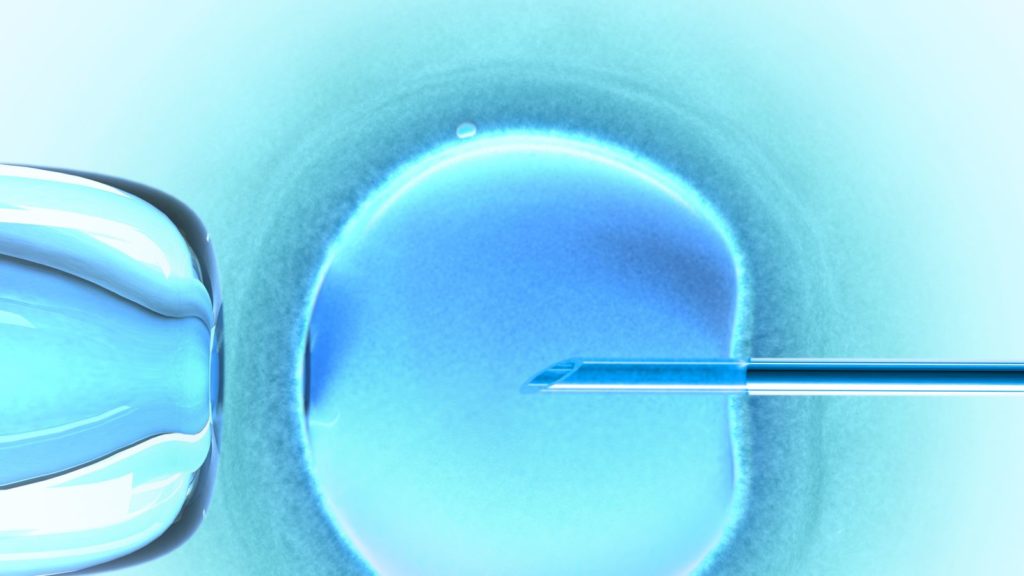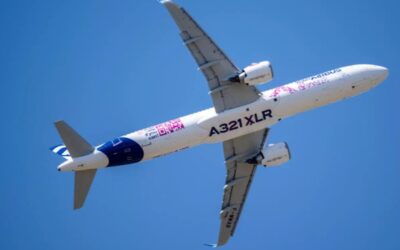UK’s first ‘three-parent baby’ born after IVF procedure | Science & Tech News

The first baby created from three genetic parents has been born in the UK.
To prevent inherited disease doctors created a “three-parent baby” by using a technique known as mitochondrial donation treatment (MDT).
The procedure, aimed at stopping a mother from passing on defective genes in the mitochondria – tiny power plants in cells that supply energy – to her child, involves giving a woman an IVF baby with DNA from three individuals.
Nuclear DNA was given to the child from the mother and father, which define key characteristics such as personality and eye colour.
They were also given a tiny amount of mitochondrial DNA provided by the “third parent”.
The Newcastle Fertility Centre was granted the first licence for the controversial therapy in 2017, after MPs and peers voted to allow it in 2015 under the Human Fertilisation and Embryonic Act.
The regulator the Human Fertilisation and Embryology Authority (HFEA) said less than five births had been recorded as a result of mitochondrial transfer procedures.
It said giving a precise figure “could lead to the identification of a person to whom the HFEA owes a duty of confidentiality”. The data was accurate up to 20 April.
The Newcastle Fertility Clinic was the first to get a licence for ‘third-parent’ baby therapy
The Guardian was the first to report on the MDT birth after submitting a freedom of information request to the HFEA. The paper said it understood the pandemic deterred some donors from coming forwards and affected other couples hoping to undergo the therapy.
The Newcastle clinic’s procedure is carried out by transferring the genetic material that effectively encodes a baby’s identity to a donor egg whose own nuclear DNA has been removed.
This produces an embryo containing healthy mitochondria from the donor and nuclear DNA from the baby’s mother and father.
MDT offers parents real hope but it is still unclear if it is a successful treatment

Science and technology editor
Mitochondria are the machines that power life.
They’re found in nearly every cell of the body and in some, are the main component – making up 40% of energy-hungry heart cells.
Put simply, we can’t live without them.
It’s why, if babies inherit faulty mitochondria, the effects can be catastrophic.
Disorders of the brain, muscles, heart, nervous system and liver – many of them fatal or life-limiting – are linked to defective mitochondria.
Mitochondrial donation treatment or MDT offers mothers with a known risk of passing on one of these conditions real hope.
But we will have to wait to find out if the first UK babies born using this technique can turn that hope into a successful treatment.
This will be the first time MDT has been carried out in a regulated environment like the UK.
Embryologists and fertility experts will want to see details published about how successfully women receiving it conceived and most importantly, whether babies born using the technique are free from the mitochondrial condition they stood to inherit – not just at birth but also after a few years of follow up.
To protect their identity, these births weren’t publicised.
But what experts will want to see next is what the science behind it is so the rest of the world can share in what may be a major advance for curing a range of inherited diseases.
Mitochondria hold only about 0.1% of a person’s DNA which is always inherited from the mother.
It can be catastrophic if mitochondrial DNA goes wrong – resulting in a wide range of potentially fatal conditions including heart problems, liver failure, brain disorders, blindness and muscular dystrophy.
Such mitochondrial diseases are incurable and affect around one in 6,500 children worldwide.
The treatment is designed to prevent the faulty genes from being passed to future generations, potentially eliminating such terrible diseases forever.
Peter Thompson, chief executive of the HFEA, said: “Mitochondrial donation treatment offers families with severe inherited mitochondrial illness the possibility of a healthy child.
“The UK was the first country in the world to allow mitochondrial donation treatment within a regulatory environment.
“These are still early days for mitochondrial donation treatment and the HFEA continues to review clinical and scientific developments.”
The world’s first baby created from DNA from three parents was born in Mexico in 2016 with the help of a New York-based team.
The mother had genes for Leigh syndrome, a fatal disorder that affects the developing nervous system.
Recent Posts
- EAA AirVenture Oshkosh 2026 invites aviation writers to be part of Author’s Corner schedule
- Archer Selects Bristol As Home For Its UK Engineering Hub
- Delta flight turns back to Houston airport due to unruly passenger
- AirVenture 2026 to highlight Pacific Air Force aircraft and personnel
- Airbus reports 2025 financial results, A320 production target revised







Recent Comments